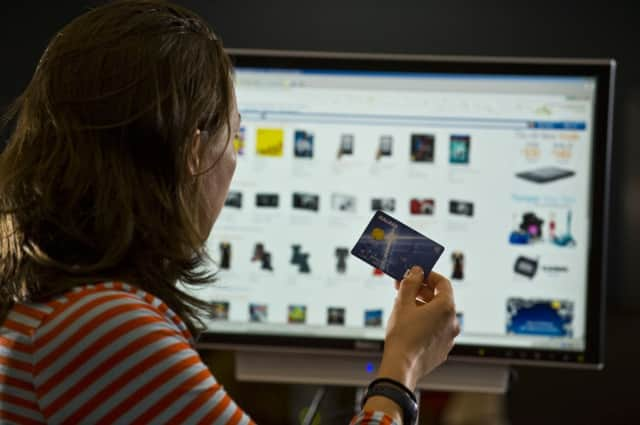Jane Bradley: Supermarkets should check our errors


Laura, who lives in rural Perthshire with her husband and three children, did her weekly online supermarket shop the other day. The “add” button, she remembers, was slightly sticky and the internet connection a bit dodgy.
A couple of days later, when the delivery arrived, she took the bags from the driver and waved him on his way. When she opened them, she discovered she had an order that would feed not just her brood for a year – but probably every child in the area.
Advertisement
Hide AdAdvertisement
Hide AdFourteen packets of cheese; eight pats of butter; more bananas than she could count, five packets of ground almonds – and multiple tubs of natural yoghurt.
When she posted a picture of her mistake on Facebook, a number of her friends admitted they’d done the same. One woman revealed she had once ordered 84 eggs and 37 pints of milk. Laura herself recalled a similar incident a few months ago when she accidentally ordered 21 courgettes.
Meanwhile, there has been a lot of debate recently about the future of supermarkets.
FOLLOW US
SCOTSMAN TABLET AND MOBILE APPS
People want to be able to shop online – but are still incensed if they do not have a choice of three supermarket chains within walking distance. Others are moving away from the traditional retailers of Tesco, Asda, Sainsbury’s and Morrisons in favour of discount retailers such as German brands Aldi and Lidl.
All of them bar Asda have reported disappointing sales figures in recent months, while Tesco earlier this month announced it would cut back its number of stores and Sainsbury’s reported job cuts. Some people believe this swift downfall of the increasingly unpopular supermarkets will spark a resurgence in the fortunes of independent shops.
I doubt it. While people like the idea of leisurely wandering up and down between the butcher, baker and candlestick-maker on a daily basis to purchase foods fresh from the farm and create delicious meals for the family dinner table, in practice, most people are as likely to peruse the local high street during the working week as they are to indulge in a spot of mid-week antiquing. People want convenience. They also like value.
With that in mind, retail experts believe that online is the key for the supermarkets. If they don’t get that right, they’ve had it.
Tesco is the king of to-your-door deliveries, followed by Sainsbury’s and Asda. Morrisons still does not offer online delivery north of the Border, though apparently it has plans to do so.
Advertisement
Hide AdAdvertisement
Hide AdOf course, if Laura had checked her shopping before the delivery van had departed, she probably could have returned her unwanted goods – most supermarkets have a policy of allowing customers to send back something that was ordered by mistake.
But, like most people, she didn’t: her two-year-old was probably clinging to her legs; the baby was howling in the background. She didn’t have time to open the bags.
This is not good news for supermarkets. While the incident was funny, from a marketing point of view, it was another dent in the reputation of the supermarket she had used. Laura, like most people, automatically posted the picture of her unexpectedly large grocery haul to social media, leaving her few hundred Facebook friends with the impression that that retailer had made a mistake. And it had.
While the error was technically Laura’s – and her dodgy computer’s – the retailer should not have allowed it to happen. The supermarkets know everything about us – they send me vouchers in full knowledge of the size of nappies my daughter uses; what type of filled pasta my husband prefers and which brand of soap we buy.
In that case, why couldn’t the system see that Laura, whose online shopping history clearly showed she would usually buy only a couple of packs of cheese at a time, had made a mistake? An “Are you sure?” prompt would have solved a lot of hassle and saved her a fair amount of money.It wouldn’t, however, have provided as much amusement. Or as much macaroni cheese.